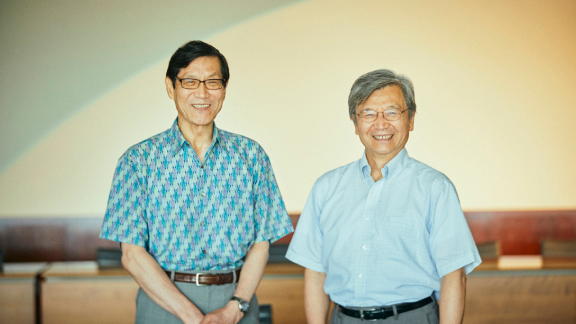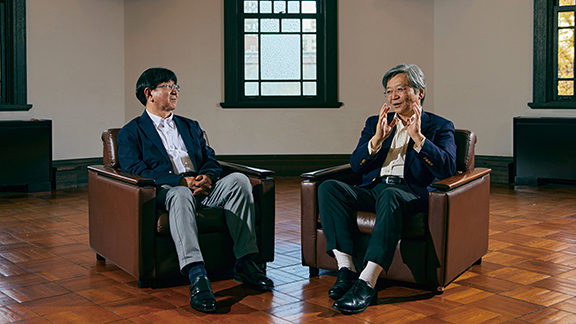Dialogue series Vol.4
A background in informatics and mathematics is the foundation of all science.
Robots that are like friends and family, information searches on the internet when it comes to research, and economic activities that are becoming cashless. What impact does the power of information mathematics have on these seemingly unrelated fields and on the background to the changing times? This time, Vice-President Satoko Nakano, who specialises in the history of economic theory and the history of economic thought, will facilitate the discussion, which will be conducted by Project Assistant Professor Kasumi Abe of the University of Electro-Communications' Research Centre for Advanced Artificial Intelligence, who is conducting research on remote childcare support robots, and Project Assistant Professor Noriko Kogushi of the Osaka University Education and Research Centre for Mathematics and Data Science, who analyses and researches the structure of Wikipedia, We spoke to them about the importance of the field of information mathematics and their expectations of the Faculty of Information and Mathematical Sciences. We also asked her to discuss the appeal of the research profession from the point of view of women in a wide range of topics.
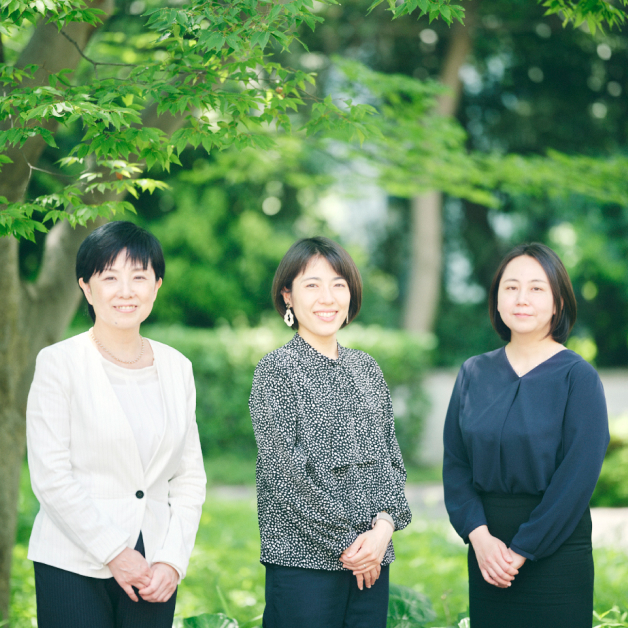
Chief Researcher, ChiCaRo Inc.
Visiting Researcher, Advanced Telecommunications Research Institute International
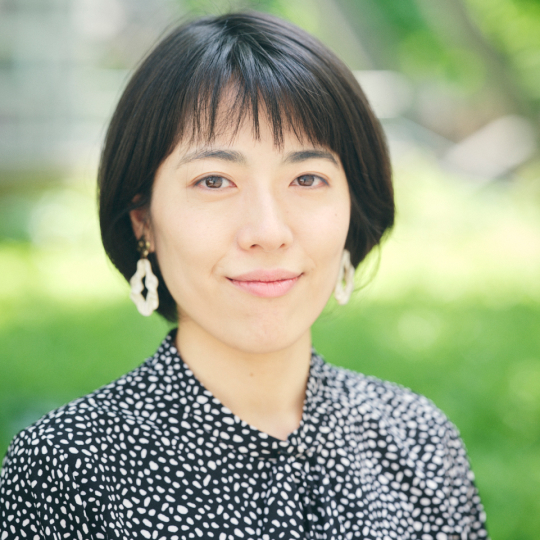
Special Assistant Professor, Education and Research Centre for Mathematical and Data Sciences, Osaka University (concurrent post)
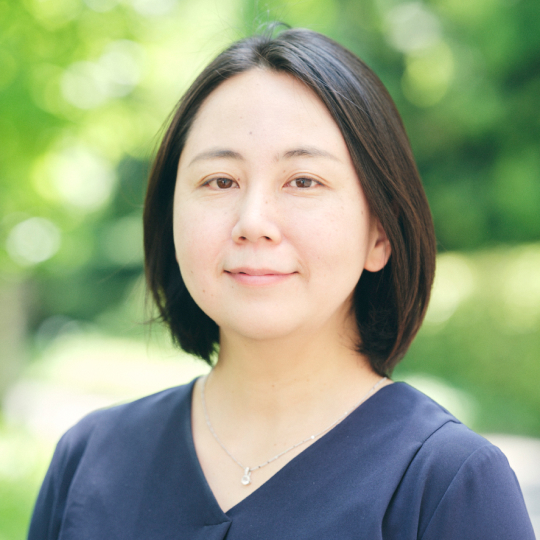
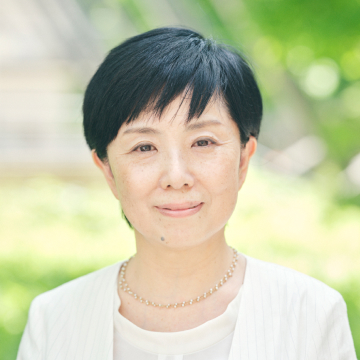
Table of Contents
- Glimpses of commonalities from their respective fields of expertise.
- Science is based on mathematical views and analytical skills.
- Abstract things like 'value' and 'quality' can be demonstrated because of the use of data.
- Technology, society and culture. Towards a frontier of coexistence or better ways of interaction.
- A focus on 'information mathematics', not just 'mathematics'. High expectations for basic education that takes time.
Glimpses of commonalities from their respective fields of expertise.
Could you start by introducing yourself and giving us a brief introduction to the kind of research you are involved in?
I have been at the University of Electro-Communications since my undergraduate days and am currently a specially appointed assistant professor at the Centre for Advanced Research in Artificial Intelligence. My field of expertise is research on interaction, such as child-robot interaction and human-robot interaction. For example, I am trying to elucidate the nature of human-robot communication through research into the kind of interaction that can help children become friends with robots. Recently, I have also been focusing on the application of the findings from these studies, such as the 'introduction' of robots and information systems into childcare and childcare settings, with the aim of contributing to solving problems in childcare and childcare systems and enhancing wellbeing.
My original affiliation is as a full-time researcher in the Strategic Creative Research Initiative PRESTO of JST (Japan Science and Technology Agency), and I am currently also an assistant professor at the Centre for Education and Research in Mathematical and Data Sciences at Osaka University. Statistical physics is my speciality. Statistical physics is a field that bridges the gap between the behaviour of individual elements and the behaviour of the system as a whole, which consists of elements interacting with each other. So, in a sense, everything in the world can be the subject of research in this field. When I was a student, I studied heat transport, but now I am studying Wikipedia as a more diverse and complex system, both in terms of elements and interactions.
Unlike the two of you, I have a liberal arts background, specialising in the history of economic theory and the history of economic thought. However, economics is not unrelated to mathematics; it is the study of analysing and demonstrating how people exchange information and trade in the market. I am doing research on how economics and mathematics were connected in the middle of the 19th century, and how they led to model analysis and empirical research, based on the ideas of the people who contributed to it and the historical documents left behind, as if I were doing a steady search in a library. However, while researching the past, I am also aware of the problems in the direction in which economics should go in the future. In this sense, I have a high interest in research and its results in information mathematics, which is very closely related to economics.
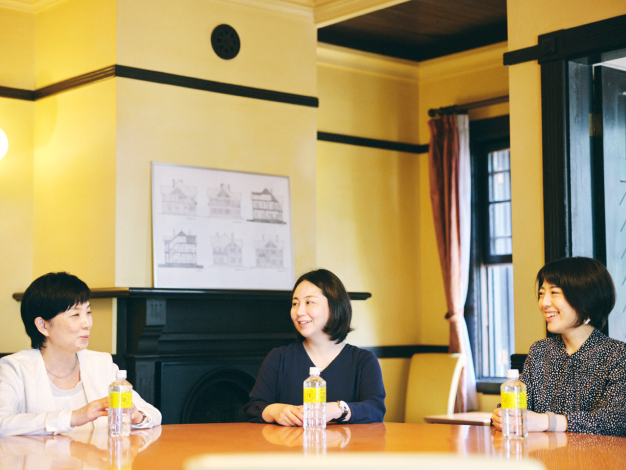
Science is based on mathematical views and analytical skills.
On the other hand, as a member of the university administration as Vice-President, I would like to create a system that produces human resources in the new era and that enables research to contribute to society, and I was looking forward to hearing from the professors who are conducting cutting-edge research in the field of information mathematics for the opening of the Faculty of Information Mathematics. Could you talk a little more about the relationship between your research and information mathematics?
Yes. In my research on child-robot interaction, it is obvious that knowledge of information mathematics is necessary for building robots and the AI and information systems that are mounted on them. In addition, knowledge of mathematics and statistics is also extremely important when analysing data obtained from experiments. This is because the degree to which you have mastered them determines whether or not you can carry out proper analysis and link it to meaningful findings.
What kind of experiments are you conducting?
Robots equipped with information systems are introduced into childcare and other settings to conduct experiments in which they talk to children and play with them. The robots are used with dozens of children, and the scenes are recorded. At the same time, sensors mounted on the robots are used to measure the distance to the children and the frequency of eye contact, which is then extracted as numerical data and analysed in combination with the recorded data.
I specialise in statistical physics, so I recognise that mathematics is a tool. As Dr Abe mentioned, the standard approach in science is to first determine the subject of the research, acquire data, and then objectively analyse the data to discuss the nature of the subject. Therefore, I believe that mathematical analysis skills are always fundamental when you are involved in science.
How is statistical physics, such as dealing with heat transport, connected to Wikipedia research?
The point is that many elements create one system as a result of their interaction. For example, a single water molecule may be moving according to Newton's equations of motion, but a glass of water behaves as a liquid, and when the temperature changes, it becomes vapour or ice and shows properties as a gas or solid. So many interactions cause the whole to exhibit qualitatively different states from the individual. Wikipedia is also made up of freely participating people who freely edit articles. Despite the fact that it is written by 'crowds' so to speak, rather than experts, it is now trusted to a certain extent as a set of information that has been around for more than 20 years and has become quite popular. However, it is impossible to understand how Wikipedia works as a successful system without evaluating what is key to its success and which elements are important. Therefore, it is important to take data, analyse it, formulate a theoretical model and put it on the chopping block of discussion, for which the power of mathematics is indispensable.
It is interesting to note that the mathematical model of the equations of motion of the molecules of matter is an analogy when analysing Wikipedia. By the way, under what circumstances does Wikipedia not collapse? Is it because the interaction is stable?
Currently, we are using it with a certain degree of trust, but it is difficult to say whether this is a stable interaction, and because everyone can edit it freely, we do not know that there is a fixed interaction, like with water molecules. However, I think it is a strange system that has continued to expand without collapsing, and is somehow working well.
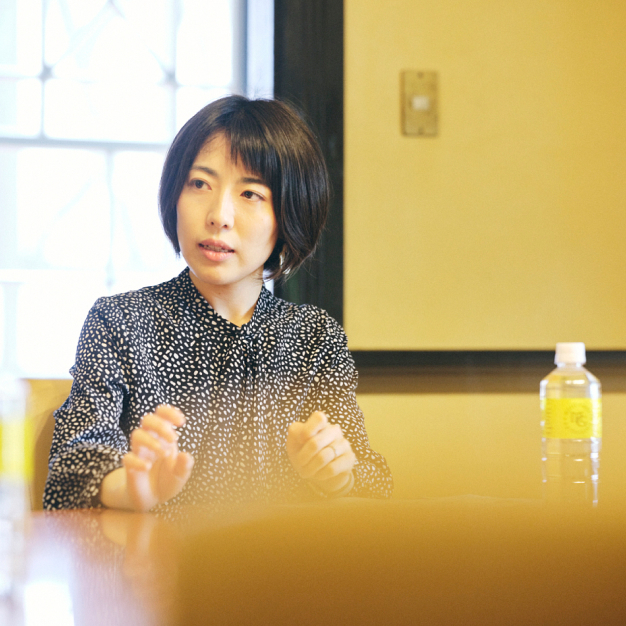
List of articles in dialogue
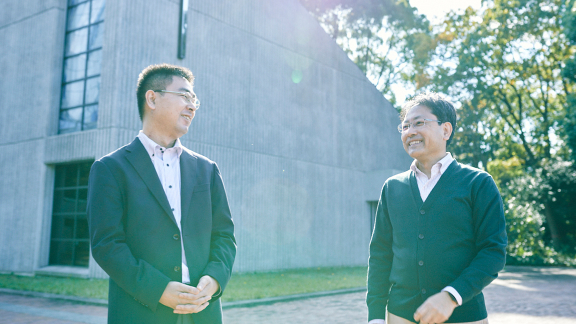 Mr. Irie (Denso) ・ Prof. Ota ed.
Mr. Irie (Denso) ・ Prof. Ota ed. Dialogue Series Vol.2 A future is coming that not even Einstein could have imagined. ― The world of "information" changed by quantum mechanics. From there, the Faculty of Information and Mathematical Sciences learns from a future perspective.
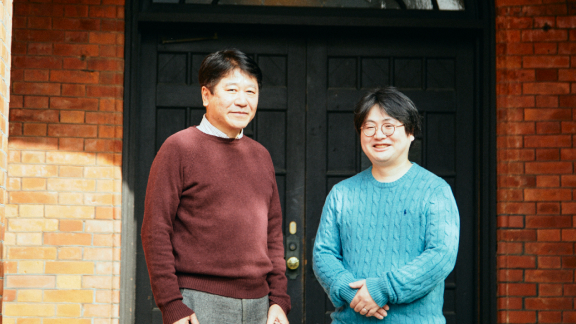 Prof. Kameda and Associate Prof. Inukai, eds.
Prof. Kameda and Associate Prof. Inukai, eds. Dialogue Series Vol.3 Updating the humanities and social sciences with the power of information mathematics! ― Information mathematics is a communication and hub that connects disciplines and people.
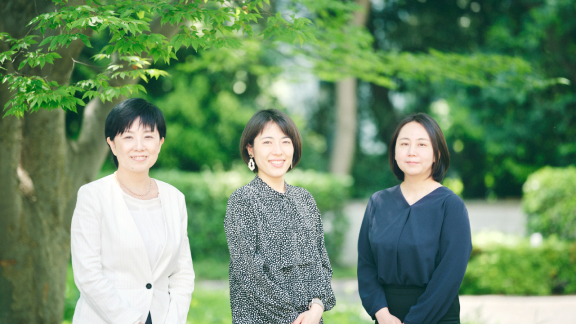 Female Researchers Edition
Female Researchers Edition Dialogue Series Vol.4 A background in informatics and mathematics is the foundation of all science. ― Great Expectations for Integration with Diverse Fields


